
Fox Valley Models Hiawatha
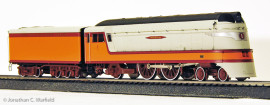
I’m also a big fan of the streamlined steamers from back in the golden age of railroading. Fox Valley Models introduces the Milwaukee Road Hiawatha streamliner in both HO and N scales in honor of the Hiawatha’s 75th anniversary.
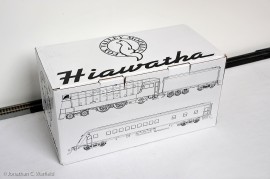
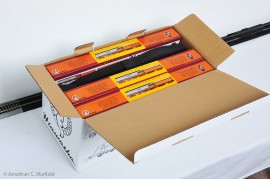
FVM offers the Hiawatha loco with a six-car passenger set. Two additional coaches are also offered to make an eight-car consist.
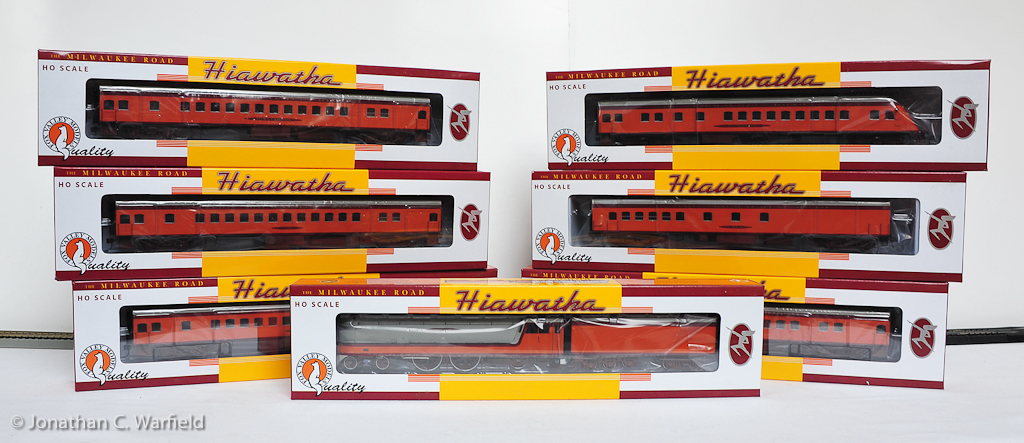
Here’s the full cast of characters in this trip back to yesteryear.

Looking pretty sleek! This particular model represents the 1935 Milwaukee Road Hiawatha that ran between Chicago and the Twin Cities. The streamlined bodywork, designed by industrial designer, Otto Kuhler, covered a Class A 4-4-2 Atlantic steam locomotive. Following the inauguration of the Hiawatha in 1935, the train became very popular with travelers. The cars pulled by the locomotive included the first Tap-Cafe car, coaches, Parlor and the iconic “Beaver Tail” Observation car bringing up the rear. This was a fast steamer! It was oil fired to reduce service times, and could pull its consist in speeds in excess of 100mph.
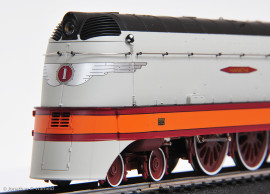
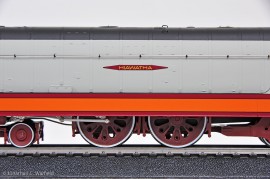
Graphics and paint are clean and sharp. The locomotive is fairly heavy, but the tender is pretty light, as are the passenger cars. The locomotive is equipped with traction tires, so it should have no problem pulling the 6-8 available passenger cars.
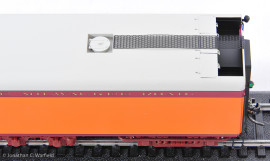
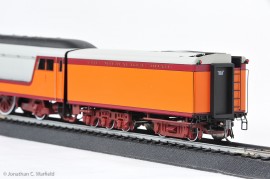
These photos are providing close-ups of some of the detail.
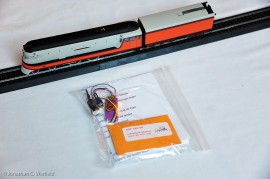
Shortly after the release of the Hiawatha, retailer Litchfield Station as released a SoundTraxx DCC sound decoder specifically programmed for the Hiawatha. Included in the programming is the prototypical air horn, instead of the more common steam whistle. Although the Hiawatha was in fact a steam loco, it used an air horn.

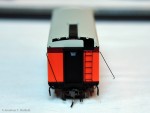

The first step in installing the decoder is removing the tender shell. This is where the decoder and speaker will reside. To remove the tender, flip the loco over and unplug the wiring harness connector at the front of the tender. Then, detach the bottom of the handrails on the rear of the tender by gently pulling them out of the bottom mounting holes. Lastly, pop off the filler cover on the top and remove the screw. Once these steps are done, gently work the top of the shell off of the chassis.
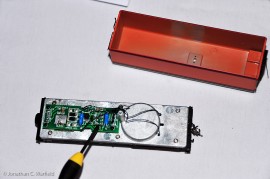
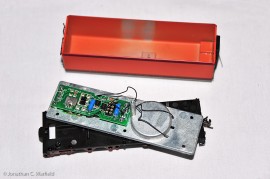
Once the shell is removed, the circuit board will be exposed. Remove the 8 pin plug from the circuit board. The decoder will be plugged in here. Remove the circuit board screws as well as the weighted speaker housing screws.
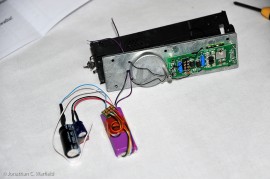
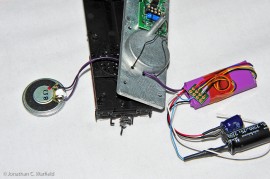
Next, thread the purple speaker wires through the speaker housing slot and solder the wires to the speaker pads.
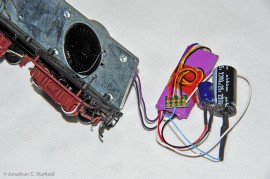
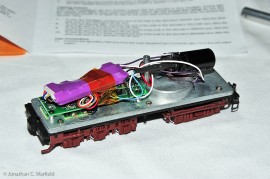
Place the speaker inside the speaker housing and remount the housing. Plug in the 8-pin connector into the circuit board and mount the decoder to the circuit board with the tape provided.
Now is the time to give your loco a test run. If everything checks out, remount the tender shell and enjoy!
Here is a video of my Hiawatha at the club layout:
This is an older test run of the Hiawatha that I had done after I installed the decoder:
[wordbay]fox valley models hiawatha[/wordbay]
Originally posted 2015-06-11 14:02:37.
You may also like
4 comments
Leave a Reply
Archives
- April 2025
- March 2025
- February 2025
- January 2025
- December 2024
- November 2024
- October 2024
- September 2024
- August 2024
- July 2024
- June 2024
- May 2024
- April 2024
- March 2024
- February 2024
- January 2024
- November 2023
- October 2023
- September 2023
- August 2023
- July 2023
- April 2023
- March 2023
- September 2022
- September 2013
- August 2013
- March 2013
- September 2012
- June 2012
- December 2011
- August 2011
- July 2011
- May 2011
- March 2011
- January 2011
- December 2010
- November 2010
- September 2010
- August 2010
- July 2010
- June 2010
- April 2010
- March 2010
- February 2010
- January 2010
- December 2009
- November 2009
- October 2009
- September 2009
- August 2009
- July 2009
- June 2009
- May 2009
- April 2009
- March 2009
- February 2009
- January 2009
- December 2008
- November 2008
- October 2008
- September 2008
- August 2008
- July 2008
- June 2008
- May 2008
- April 2008
- March 2008
- February 2008
- January 2008
- December 2007
- November 2007
- October 2007
- September 2007
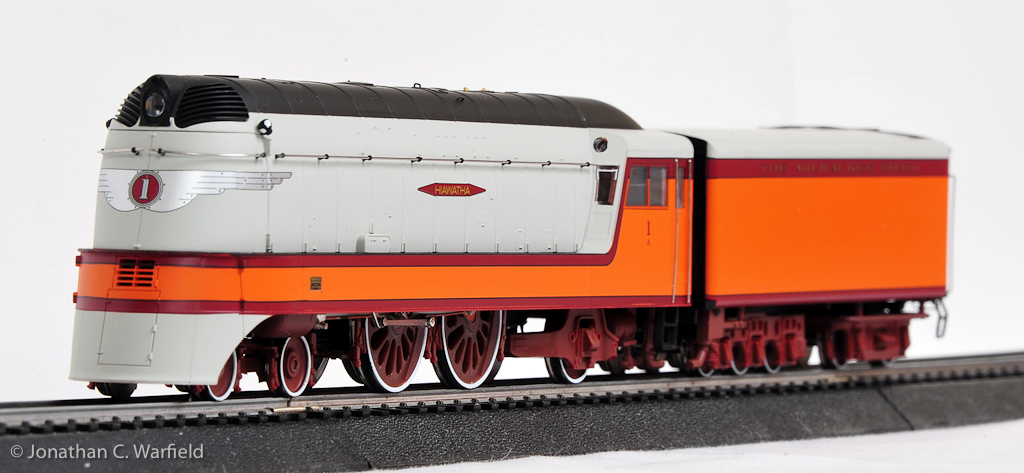
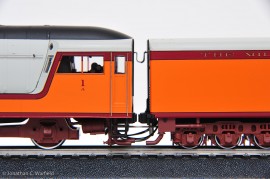
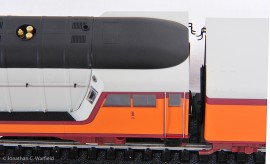
How did you get your hands on this model? Its imposssiblento find anywhere.
I ordered it when it was released.
I have the same model and have installed a Blunami decoder in it. I have blown out the original headlight in the first few hours of operation. I replaced the original and blew the replacement in the next half hour of operation. I put a third one in and this time installed a resistor in line with the light and still can’t get it to stay lit. Have you had any problems with the headlamp? Any suggestions as to what I should trouble shoot?
My train forum tells me you may be able to help me. The trucks on my HO Fox Valley Hiawatha are deteriorating. I’ve owned this loco set for 8 years and it appears to be getting worse.
Do you know why? And where can I get replacements?
I have pictures if that helps.
Rick Moore
616-295-0003
Sent from AT&T Yahoo Mail on Android